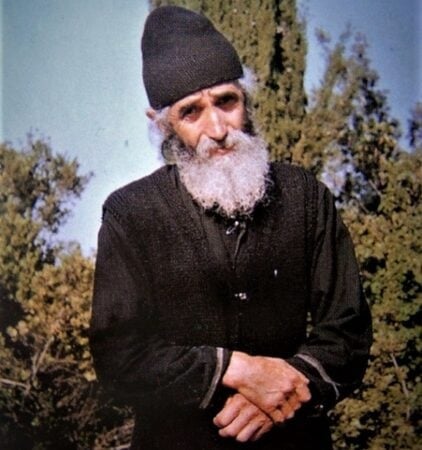The possessed and the mentally ill
25 October 2021There are times, in religious circles, when confusion arises over which people are mentally ill and which are possessed by demonic energy. When Saint Païsios the Athonite was asked how the mentally ill can be distinguished from the possessed, he answered:
‘Any ordinary doctor who’s in the Church can diagnose that. If people are possessed and they approach a sacred object, they go to pieces. From this it’s obvious that they have a demon. If you give them a little holy water or make the sign of the cross over them with a holy relic, they react, because the demons are cringing inside them. If, on the other hand, they’re suffering from a mental illness, they don’t react at all. Even if you’re just wearing a Cross and you approach one of the first group, they become upset and jittery… Some psychiatrists consider the possessed to be mentally ill. Some priests, on the other hand, would have it that the mentally ill are possessed. But if they’re going to get help, a mentally ill person needs to go in one direction and someone possessed in another’.

The position of the saint on exorcisms read over the possessed is very enlightening. When he was asked if the possessed are helped by exorcism, he answered: ‘It depends. Exorcisms help when they’re read for a possessed little child who’s done nothing wrong, doesn’t know about confession or to a large degree has lost its mind and can’t confess. If the person possessed is of sound mind, they have first to be helped to find what was wrong and how they came to be possessed. They have to repent, confess and then, if necessary, they should have an exorcism read over them. Because it may be that the demon will leave simply through the prayer of forgiveness’.
We see here how much significance the saints give to human freedom, even in such difficult circumstances. People who are being tormented by the devil have to call upon the reserves of their freedom, even in this dark and difficult circumstance and declare through their repentance that they ally themselves freely to Christ and reject Satan. It’s only in cases where this freedom can’t be expressed that the Church undertakes the task with the prayers of exorcism, the use of which, however, demands wisdom and discernment.
The same saint rebuked priests who read exorcisms indiscriminately, even over people who only have some bodily sickness. He considered it inappropriate and an affront to human dignity for people to be in pain and have ‘come out, unclean spirit…’ read over them at an exorcism. He relates the following about one such instance. ‘They brought me a young man, twenty-five years old who, they said, was possessed. I gave him holy water to drink and the poor lad didn’t react at all. I asked the father what the young man did and how long he’d been like this. He replied since he was six years old when his murdered grandfather had been brought into the shop. The poor thing had suffered a nervous breakdown’.
Throughout his life, Saint Païsios showed great sympathy for the possessed, who, he felt, were experiencing the ultimate humiliation and suffering in their lives. He welcomed them with patience and love and advised priests to treat them with discretion and calm, and not in an insulting manner.






